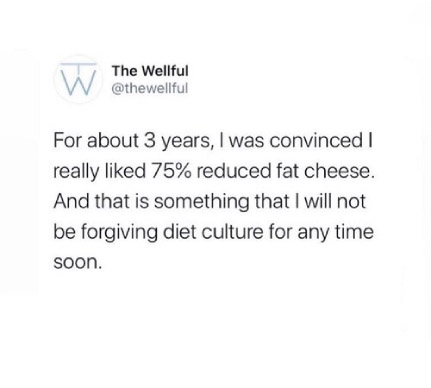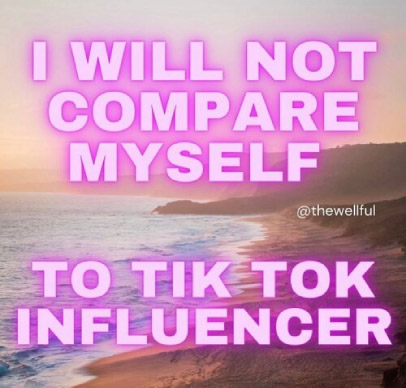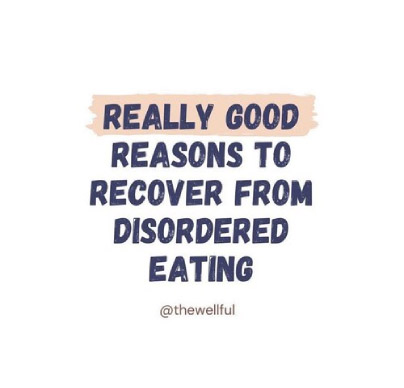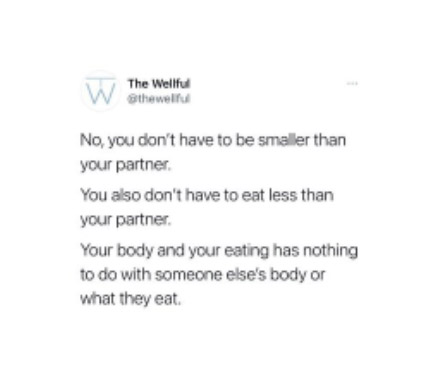Have you ever thought about the connection between food allergies/intolerances and disordered eating? It’s real. While sometimes overlooked, there’s a legitimate link between people who have food allergies and/or food intolerances and those with eating disorders. It makes sense that people with food sensitivities, whether it’s Celiac Disease, Crohn’s, IBD, or food allergies, are at an increased risk for disordered eating. As nice as it is to spread the gospel of “no food rules!” or “food freedom!” the reality is that people with food sensitivities will have some ‘rules’ around eating that keep them safe.
People with food allergies and/or food sensitivities require a certain level of awareness, intention, and rules to keep them safe when eating. There can also be a sense of grief that comes with a new diagnosis of an allergy or intolerance. There’s a lot that goes into food sensitivities and disordered eating. We’ll get into it below and provide you with some tools and resources if you feel like this applies to you.
Understanding Disordered Eating
We have to start with a little overview of what disordered eating is and how it ties into food allergies and sensitivities. Disordered eating describes irregular eating patterns, restrictive diets, and an unhealthy obsession with food. Keep in mind that these behaviors may take shape in many forms and that the few habits mentioned above do not cover all of them. You can still struggle with disordered eating even if you don’t participate in these particular behaviors. Disordered eating may develop as a result of various factors, including psychological, emotional, and social influences. While food allergies may not directly cause disordered eating, they can trigger or strengthen disordered food thoughts or behaviors.
The Intersection of Food Allergies and Eating Disorders
Many people with food allergies experience a sense of fear and anxiety around food. The constant worry of accidentally ingesting allergens and experiencing severe allergic reactions can make it hard to navigate social settings and could put you in a restrictive mindset. Plus, if you already have a history of eating disorders, being at an event where there’s nothing that fits your dietary needs could bring up old feelings of restriction or the need to control everything.
The Tricky Nature of Eating Disorders & Allergies
Another component of food allergies/sensitivities and eating disorders is the sneaky way they can permeate your life. The food rules that are in place to keep you safe could also be a gateway to further eating disorder behaviors. It can be socially tiring to constantly advocate for yourself at restaurants. “Does this have dairy in it?” “Was this made in a gluten-free environment?” Sometimes you don’t want to ask those questions or you might even feel embarrassed doing so if you’re singled out because of it. This can contribute to disordered eating in the following ways:
- Restrict-binge cycle of eating
- Eating in secret
- Reelings of food guilt or shame
- Increased restriction
- Eating foods you know cause symptoms
- Feeling really rigid or perfectionistic around eating
So long story… long, yes, food sensitivities and food allergies can impact our relationships with food. If you’re experiencing any degree of that, please know this: I see you, I’m here for you, and you are not alone.
Now that you’re aware that this is indeed a real thing, the next step is to figure out what to do about it. Here are 3 gentle reminders for those navigating food sensitivities, food allergies, and disordered eating. **Note: these also apply to people who are generally working on developing a positive relationship with food. You don’t have to have been diagnosed with a food intolerance for this to be relevant to you.
2. Practice allowance and acceptance.
This includes allowing yourself to grieve your past relationship with food. Yes, I said grieve. The relationship you have/had with food is legitimate and the only way you’re going to be able to develop a better one now is if you acknowledge the presence of the old one.
Grieving your old relationship with food could look like missing the days when you could just order a breakfast sandwich without having to check the ingredients. It could look like grieving the days when you could effortlessly go out to eat with friends. Or maybe it’s just that you miss the way some foods taste. Perhaps you’re also grieving the amount of time it’s taken you to figure out which foods are causing your symptoms – all that time may feel like a real loss.
These feelings are valid. Do your best to practice compassion for yourself while you experience them.
2. Give yourself permission to eat the food substitutes.
This may require some extra internal work and a change of the conversation in your head. As a registered dietitian for food intolerances and allergies, I can help you with that. There are so many food alternatives available these days, which is both a good and challenging thing. The benefit is that you have lots of options from which to choose. The challenge is finding the substitutes that you really like! Don’t be afraid to try different brands and experiment. Gluten-free bread from one brand could taste completely different from another, so don’t limit yourself to the first thing you try.
On the note of limiting yourself with food, I encourage you to watch out for a restrictive mindset. Instead of saying, “Oh I don’t need to go out of my way to get the dairy-free ice cream…I just won’t enjoy ice cream at all anymore,” I’d suggest refraining from that mentality. Are you an ice cream lover? If this is a food that you enjoy and always have, it would be a real shame to eliminate it completely. Adding restrictions to your already limited diet can limit social experiences that food substitutes can allow you to be more present and included in.
Going out for sushi? Just make sure there’s tamari on the table (most is naturally gluten-free). Have a peanut allergy? Opt for almond or nut butter instead. There are options. It’s up to you to be open to them.
3. Remind yourself that this learning curve is temporary.
The learning curve that comes along with retraining your brain as it relates to food allergies can be steep. Accept that but know that it won’t be this way forever. Changing how you eat, reading food labels, figuring out what stores stock the brands you like, navigating eating at restaurants… all of that is a lot! But soon it won’t be quite so daunting. Soon you’ll have a few go-to restaurants where you can freely order from the menu; you’ll know how your body reacts to certain foods and you’ll feel more at ease advocating for yourself in social situations. If you need help learning how to do that and what steps to take, just know that I’m here to help.
Working Through Food Allergies Together
Struggling with food allergies or intolerances can make eating feel stressful and overwhelming, but it doesn’t have to be. The Wellful provides compassionate nutrition therapy to help you rebuild a peaceful relationship with food, no matter your specific challenges.
We know that restrictive diets often create anxiety, guilt, and shame around eating. That’s why our non-diet approach focuses on finding foods that make you feel good both physically and mentally. No obsession, no unrealistic expectations – just support to live your best life.
At The Wellful, you will find an inclusive community that celebrates people of all eating habits and beliefs; evidence-based guidance to expand the foods you can comfortably eat; and so much more.
Our goal is for you to feel empowered, not restricted, around meals. If you are tired of the overwhelming and conflicting advice out there, give us a call. Rebuilding a healthy bond with food is possible – we can show you how. Ready to get started? Schedule a complimentary 15- minute consultation with our registered dietitian, Brenna, RD today. You can also contact The Wellful at 925-725-2761 with additional questions. We look forward to hearing from you.











